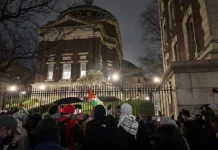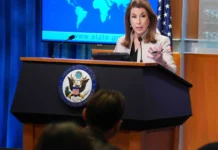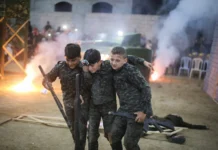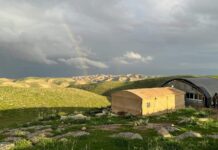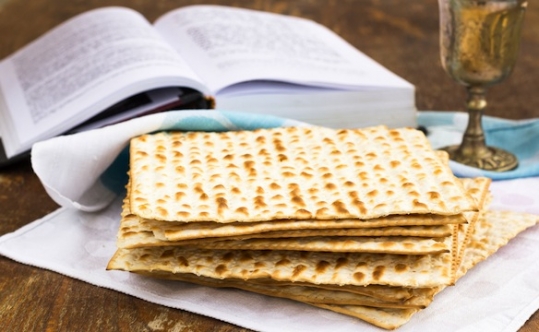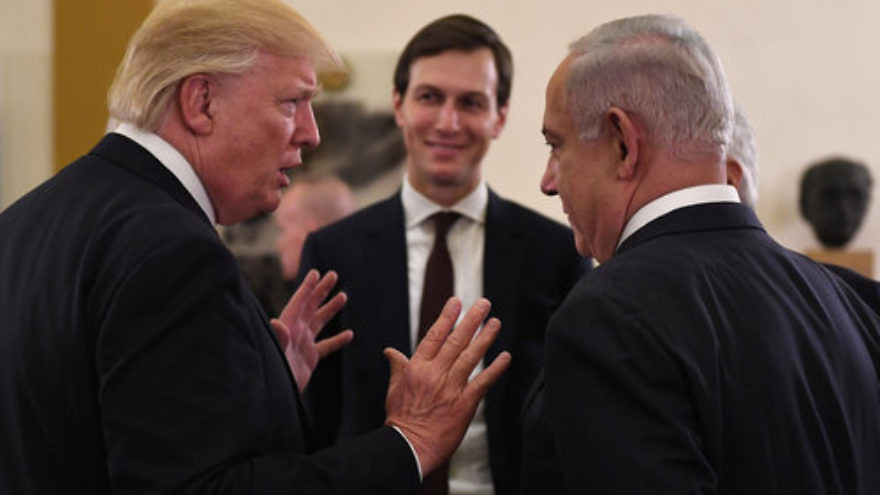As Israel heads to the polls on Sept. 17, the fate of the release of the Trump administration’s entire Mideast peace plan for the Israelis and the Palestinians remains to be seen, an administration official told JNS on Thursday.
“The Bahrain workshop will go on as scheduled, June 25-26,” said the official in an email. “As far as the rest of the plan/rollout, we’ve long said that we will release the plan when the timing is right.”
Kushner said in April that the so-called “deal of the century” would be released after Ramadan, which concludes on June 4.
The Bahrain workshop is the first part of the peace proposal rollout and is expected to deal with revitalizing the Palestinian economy.
The second part is expected to deal with the political issues surrounding the conflict, including geographic boundaries.
Nonetheless, the Palestinian Authority believes that Israel’s unprecedented election status will delay the remaining part of the rollout, reported Haaretz on Thursday.
The failure of Israeli Prime Minister Benjamin Netanyahu to form a coalition largely came as a result of an impasse between former defense minister and Yisrael Beiteinu leader Avigdor Lieberman and the ultra-Orthodox parties—Shas and United Torah Judaism—over a military draft bill for ultra-Orthodox men.
“It’s too bad what happened in Israel,” U.S. President Donald Trump told reporters on Thursday. “More likely they’ll have to go back into election mode.”
On Thursday, Netanyahu met in Israel with White House senior adviser and presidential son-in-law Jared Kushner and U.S. special envoy to the Middle East Jason Greenblatt.
Also in attendance were U.S. Special Representative for Iran Brian Hook and Israeli Ambassador to the United States Ron Dermer.
“It’s always a great pleasure to welcome Jared Kushner and Jason Greenblatt to Israel, to Jerusalem, and to discuss our common efforts for prosperity, security and peace,” said Netanyahu. “I’m tremendously encouraged by how the United States, under [U.S.] President [Donald] Trump, is working to bring allies together in this region against common challenges, but also to seize common opportunities.”
Kushner said “the security of Israel is something that’s critical to the relations between America and Israel, and also very important to the president, and we appreciate all your efforts to strengthen the relationship between our two countries. It’s never been stronger, and we’re very excited about all the potential that lies ahead for Israel, for the relationship and for the future.”
At the TIME 100 Summit in April, Kushner said “the two-state solution failed. New and different ways to reach peace must be tried.”
He also stated that the strategy focuses on “how do we make life for Palestinians better?” and “how do we make Israel safer?”
JNS reported in February that the peace plan is expected to consist of the United States recognizing a Palestinian state with its capital in remote parts of eastern Jerusalem, according to an informed source hearing from top Trump administration officials.
The Palestinians have claimed that sector of the city as the capital of a future state, a position supported by most countries. But Israel considers the entire city, including its eastern part, to be the Jewish state’s undivided capital.
The Trump administration officially recognized Jerusalem as Israel’s capital in December 2017, in addition to relocating the U.S. embassythere from Tel Aviv the following May. However, the move by Trump did not recognize any boundaries of Jerusalem, which the president said would be resolved through negotiations. It also maintained the status quo for the holy sites in the city.
Finally, the peace plan includes official U.S. recognition of large Israeli towns in Judea and Samaria, according to the source, though did not specify which ones.

